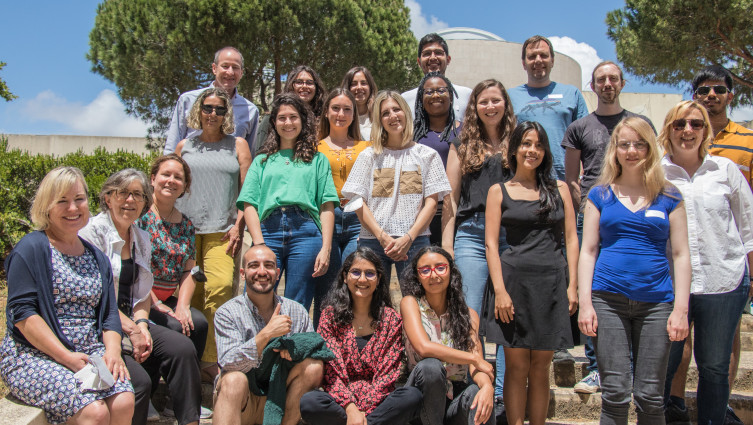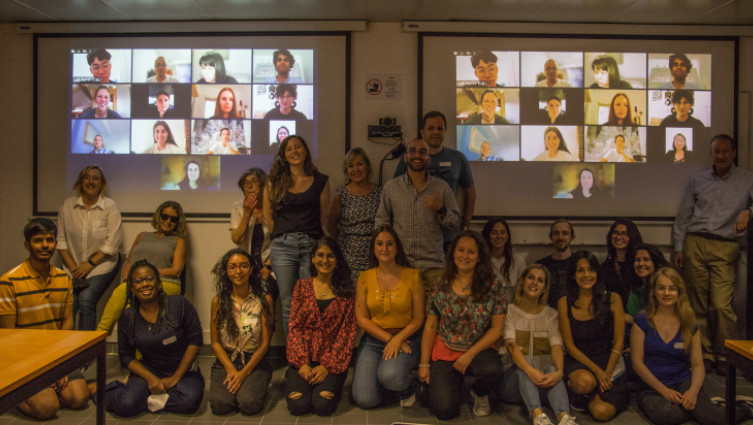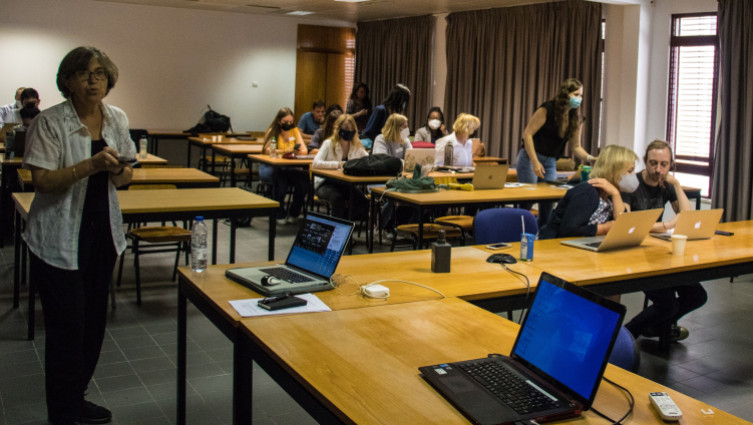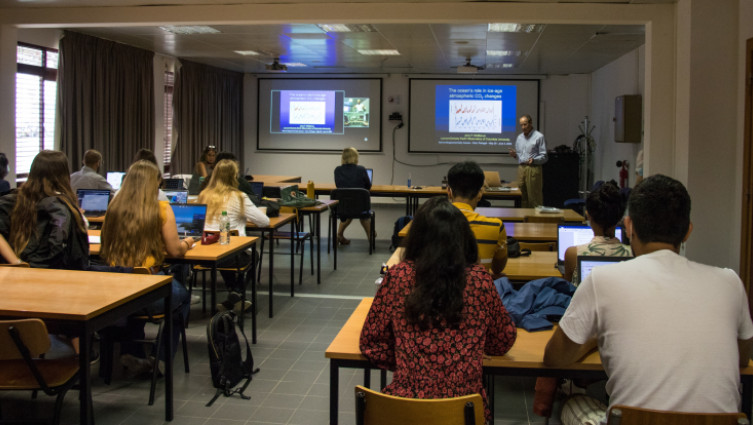Marine Biogeochemistry Training School brought together researchers and students from 19 countries
The 2nd edition of the Marine Biochemistry Course brought together for 6 days students from 19 nationalities to learn more about the biogeochemical and ecological dimensions of a changing ocean.
Organized by our researcher Fátima Abrantes the course happened in a hybrid way with face-to-face classes at the University of Algarve (UAlg) and online assistance and sought to provide PhD students and young researchers an exceptional opportunity to gain a better understanding of marine biogeochemical cycles and large-scale distribution of biological elements and/ or tracers of oceanographic processes and their isotopes.
The sessions were guided by a group of world experts in Marine Biogeochemistry such as Yves Plancherel, Susanne Neuer, Adina Paytan, Jerry McManus and Jamie Wilson who addressed the modern oceanic distributions and biogeochemical cycles of the most biologically used elements, as well as the distribution of elements that can be important markers for oceanographic processes and for the reconstruction of past conditions.
The economic and social value of such studies and an introduction to conceptual and numerical modelling as well as the principles of biogeochemical analyses were also reviewed.
Each subject was accompanied by practicum periods organised so that both face-to-face and online students could participate. In addition, all students made a 5-minute pre-recorded presentation, followed by questions and answers.
The field trip to Faro Island under the guidance of Professor Susana Costas from UAlg was an outdoor activity and an opportunity to learn about morphodynamics and coastal hazards.
In the end, the participants highlighted the "very recent and new" information and scientific theories and updated trend lines for new research developments presented, the "interaction with the teachers and the practicum", as well as the "international aspect of the grouping of different fields and nationalities", concluding that it felt "more like a scientific exchange and group work than a regular series of conferences".





